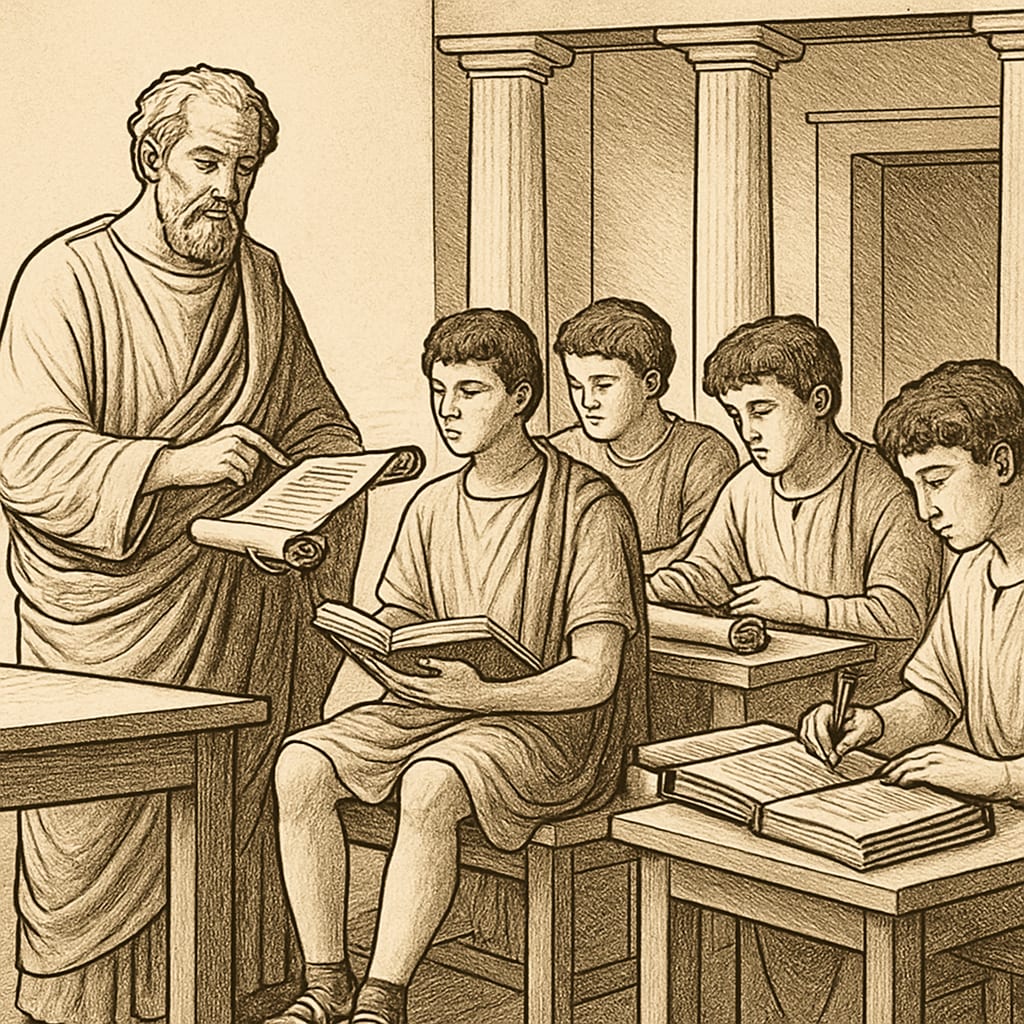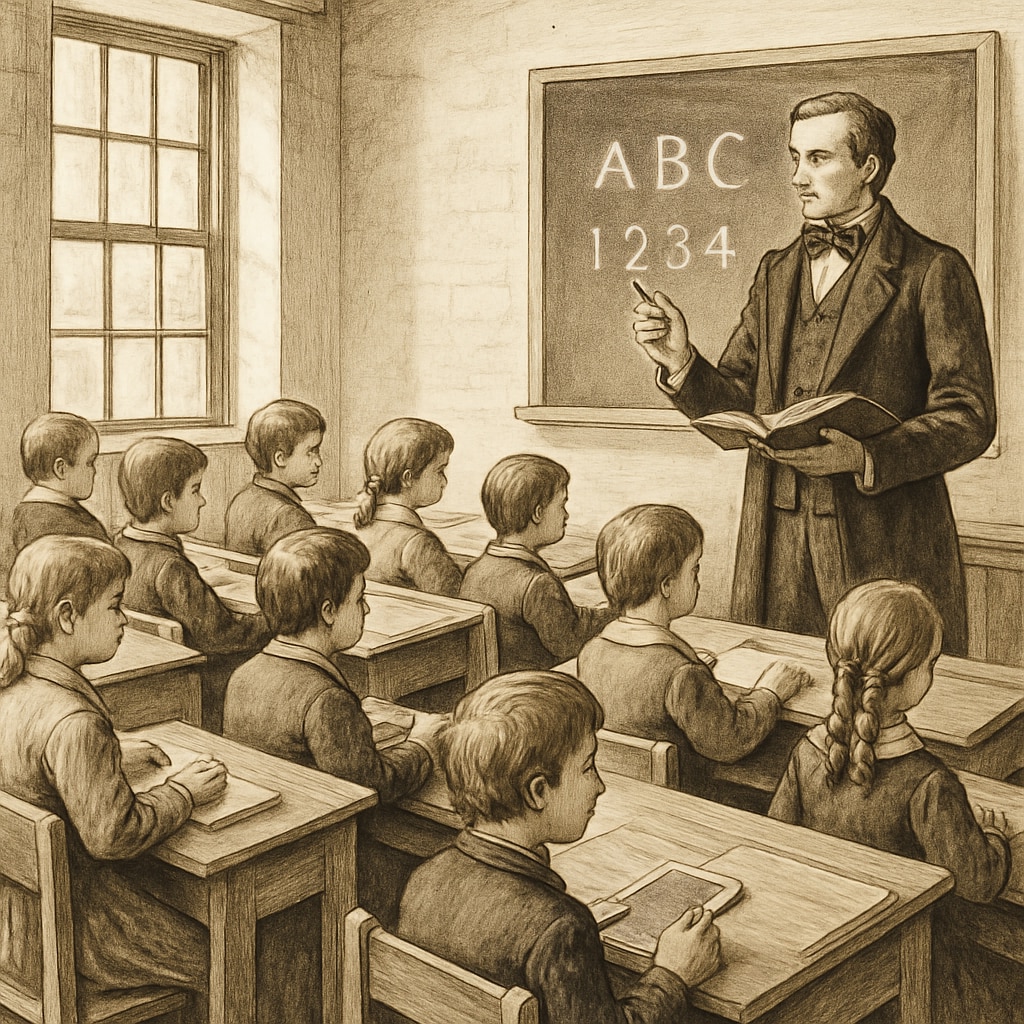Classical education, once the cornerstone of intellectual development in the Western world, has gradually shifted from a dominant educational model to a more niche approach. This article delves into the historical causes behind the decline of classical education, examining key factors such as the Industrial Revolution, educational democratization, and the rise of pragmatic philosophies. Additionally, we reflect on the potential value of classical education principles in shaping modern educational reforms.
The Foundations of Classical Education
Classical education, rooted in the traditions of ancient Greece and Rome, emphasized the study of the trivium (grammar, logic, and rhetoric) and the quadrivium (arithmetic, geometry, music, and astronomy). Its goal was to cultivate well-rounded individuals capable of rational thought, eloquent expression, and moral virtue. For centuries, this model played a pivotal role in shaping leaders, scholars, and citizens during the Renaissance and Enlightenment periods.
However, the classical model’s reliance on Latin, Greek, and ancient texts made it less adaptable to rapid societal changes. The seeds of its decline were sown as new forces reshaped societal priorities and educational needs.

The Impact of the Industrial Revolution
The Industrial Revolution (18th-19th centuries) marked a turning point in education. As societies transitioned to industrial economies, the demand for a workforce skilled in technical and vocational fields surged. Classical education, with its focus on humanities, was increasingly viewed as impractical for preparing individuals for industrial labor.
In addition, industrialization emphasized efficiency and specialization, leading to the emergence of standardized schooling systems. These schools prioritized practical skills over classical ideals, aligning curricula with the demands of a growing industrial society. As a result, classical education began to lose its central role in mainstream education.
Educational Democratization and Its Effects
Another significant factor in the decline of classical education was the democratization of education. During the 19th and 20th centuries, movements advocating universal access to education gained momentum. Public education systems were established to provide basic literacy and numeracy to the masses, rather than the elite-focused classical curriculum.
While democratization greatly expanded educational opportunities, it also led to a shift in priorities. The broad appeal of accessible education meant that curricula had to be simplified and stripped of the rigorous intellectual demands of classical studies. Subjects like Latin and Greek were deemed irrelevant for the majority, further marginalizing classical education.

The Rise of Pragmatism in Education
Pragmatism, a philosophical movement emphasizing practical outcomes and real-world applications, gained prominence in the late 19th and early 20th centuries. Thinkers like John Dewey advocated for education that prepared students for life in a rapidly changing, industrialized world. Schools began to focus on experiential learning, critical thinking, and problem-solving skills rather than rote memorization of classical texts.
While pragmatism brought valuable innovations to education, it further distanced the modern curriculum from classical education principles. The classical emphasis on moral and intellectual virtue was overshadowed by the drive for utilitarian outcomes, such as employability and economic productivity.
Revisiting Classical Education in Modern Reforms
Despite its decline, classical education has not disappeared entirely. In recent years, there has been renewed interest in its principles, particularly among educators and parents who seek alternatives to the perceived shortcomings of modern education systems. Classical education’s focus on critical thinking, moral development, and intellectual rigor offers valuable lessons for contemporary reforms.
For example, the rise of classical charter schools and homeschooling movements demonstrates a growing desire to integrate timeless educational values into modern frameworks. By blending classical ideals with modern pedagogical methods, educators can create a balanced approach that addresses both intellectual and practical needs.
Ultimately, the historical evolution of education reminds us that no single model is perfect. However, revisiting the strengths of classical education can inspire a richer, more holistic approach to learning in the 21st century.
Readability guidance: This article uses clear structure, concise paragraphs, and accessible language. It balances historical analysis with modern reflections, ensuring readability while maintaining academic depth.


